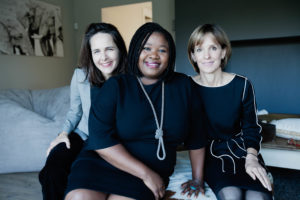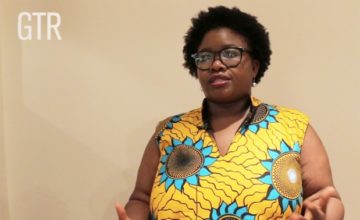Victus Global Capital Ltd to bring Gender Lens Investing to Africa’s Agricultural SMEs
- Jun 29, 2017
- By G3rs1g_ny
- In Uncategorised
Developed and managed by an experienced team of African investment and food industry experts, the company aims to dramatically expand opportunities for women-led businesses as the global need for high-output production looks to intensify.

Zee de Gersigny & Bo Masole of Victus Global, Jenni Chamberlain of Altree Capital
[29 May 2017], EUROPE/AFRICA: Victus Global Capital (VGC) Ltd has announced today that it has gained Appointed Representative status under Resolution Compliance Limited (FCA no. 574048) and is in the process of building its initial US$50m fund with the stated objective of assisting women-led and/or women-focused agri-businesses in Africa. The company is currently working on a pipeline of projects and aims to make individual investments of between US$250,000 and US$10m.
VGC was established by African women to facilitate the financial and social betterment of women across their home continent. Together, its two founders – Bo Masole and Zee de Gersigny – have more than 30 years’ expertise in targeted investment and food technology. Partnering them in this venture is African asset management specialist Altree Capital, whose CEO, Jenni Chamberlain, has been placed repeatedly in the Africa AM Power 50 list of influential industry figures.
The VGC initiative aims to address the missing middle in African agriculture and pursue systemic gender-based social change through the practice of Gender Lens Investing. It is believed that this is an increasingly salient trend in global investment. Gender Lens Investing focuses on funding women-owned businesses, companies with a track-record of employing women, and businesses that can be shown to have improved the lives of women through their products and services. “I believe there are three long-standing problems that have caused African agricultural development to stagnate. These are lack of technical expertise or know-how; lack of access to markets; and lack of access to finance,” says Masole, who is also founder of fellow VGC Group company, the food security consultancy Victus Global Ltd.
Successive studies indicate that Gender Lens Investing is a powerful method by which to resolve these longstanding problems, adds de Gersigny: “SMEs represent 45% of employment and 33% of GDP in emerging markets, and one-third of these SMEs are women-owned – yet 70% of the SMEs in this category are underserved by financial institutions (1). This means that huge opportunities to increase employment and production are being missed year after year.”
Boosting agricultural output is fundamental because, despite decades of investment, Africa remains a net importer of food to the value of US$22bn every year (2). “Given that more than 60% of the world’s uncultivated arable land is situated on the African continent (3) – and only a small percentage of suitable agricultural land is currently being irrigated (4) – this is a situation that has remained unaddressed for far too long,” says Masole. “And with the worldwide population expected to rise to 9.7bn by 2050 (5), there is a global context to this as well. Quite simply, we need to produce more food for the world– and Africa is the place to do it.”
Having been active in African investment and asset management for more than 25 years, Chamberlain believes that the VGC venture “is one of the most exciting of all those with which I have been involved. Through the expertise of Bo and Zee, and the practice of Gender Lens Investing, the path is clear to enhancing the lives and businesses of African women for generations to come.”
The information provided in this document is informational only and is not an offer to sell, or a solicitation of an offer to buy, interests in any investment fund. Investors must meet certain qualifications to be eligible to purchase alternative investments.Your capital is at risk if you invest.
REFERENCES:
1) World Bank – Women Entrepreneurship Development Project http://www.worldbank.org/en/news/feature/2015/11/16/fi nancing-womenentrepreneurs-in-ethiopia
2) Food and agriculture organization of the United Nations Why has Africa become a net food importer? 2011 http://www.fao.org/docrep/015/i2497e/i2497e00.pdf , page 1
3) Africa could feed the world, but smallholders will be key http://www.africaprogresspanel.org/wp-content/uploads/2013/11/20131129_Africa_could_feed_the_world_but_smallholders_will_be_key_ENG.pdf
4) http://www.ifpri.org/blog/irrigating-africa
5) UN DESA Report, ‘World Population Prospects: The 2015 Revision’.






